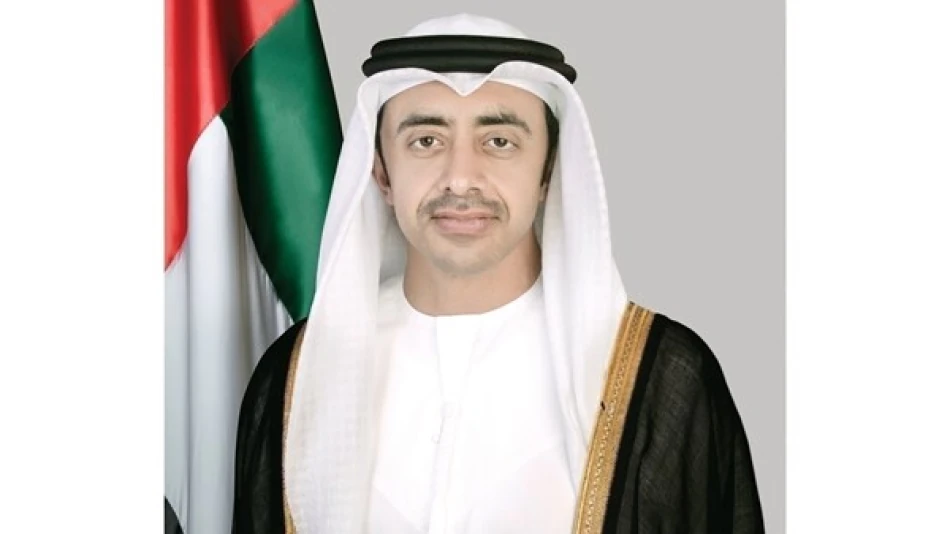
Gaza's Humanitarian Crisis Reaches Unprecedented, Critical Levels, Warns UAE's Abdullah bin Zayed
UAE Pledges Unprecedented Gaza Aid Surge as Humanitarian Crisis Deepens
The United Arab Emirates is dramatically escalating its humanitarian response to Gaza, with Foreign Minister Sheikh Abdullah bin Zayed Al Nahyan declaring the territory's conditions have reached "critical and unprecedented levels." The Gulf nation is positioning itself as the leading force in international relief efforts, signaling a strategic pivot that could reshape regional diplomatic dynamics while addressing what many consider the worst humanitarian crisis in Gaza's recent history.
Multi-Front Relief Strategy Emerges
Sheikh Abdullah announced an immediate resumption of airdrops to Gaza, part of a comprehensive aid delivery system utilizing land, sea, and air corridors. This tri-modal approach represents a significant logistical undertaking that few nations have attempted in the region, highlighting the UAE's growing capacity for complex humanitarian operations.
The Foreign Minister emphasized that UAE support would reach "those most in need," suggesting a targeted approach rather than broad distribution. This precision strategy could prove more effective than previous international efforts that struggled with coordination and delivery challenges in Gaza's constrained environment.
Regional Leadership Play Takes Shape
The UAE's prominent role in Gaza relief efforts reflects broader geopolitical calculations beyond humanitarian concerns. By positioning itself as the primary coordinator of international aid, the Emirates is leveraging soft power to strengthen its regional influence while potentially opening diplomatic channels with various Palestinian factions.
Strategic Timing and Implications
This humanitarian surge comes as traditional regional powers face domestic pressures and international scrutiny over their Gaza responses. The UAE's proactive stance contrasts sharply with more cautious approaches from other Gulf states, potentially establishing Abu Dhabi as the preferred Western partner for Middle Eastern crisis management.
The timing also suggests coordination with international partners, particularly given the complex airspace and maritime restrictions around Gaza. Such operations typically require extensive diplomatic groundwork, indicating the UAE has secured necessary clearances from multiple stakeholders.
Operational Challenges and Precedents
Humanitarian airdrops in conflict zones carry significant risks and limitations. Previous international airdrop campaigns in Gaza have faced challenges including limited payload capacity, distribution difficulties, and safety concerns for both aircraft and ground recipients. The UAE's confidence in resuming these operations suggests either improved coordination mechanisms or acceptance of higher operational risks.
The multi-corridor approach mirrors successful humanitarian operations in other conflict zones, where diversified delivery methods have proven more resilient against disruption. However, Gaza's unique geographic constraints and security environment present challenges that have historically complicated even well-funded relief efforts.
Economic and Diplomatic Dividends
For the UAE, leading Gaza humanitarian efforts offers multiple strategic returns. The initiative strengthens Abu Dhabi's credentials as a responsible regional power while potentially improving relations with Palestinian populations across the Middle East. This humanitarian leadership could also facilitate future economic and political engagement opportunities as conditions stabilize.
The commitment to sustained operations, as emphasized by Sheikh Abdullah's "unwavering" pledge, signals long-term strategic thinking rather than short-term crisis response. This approach typically yields greater diplomatic influence and regional standing, positioning the UAE favorably for future Middle Eastern developments.
Most Viewed News

 Layla Al Mansoori
Layla Al Mansoori






